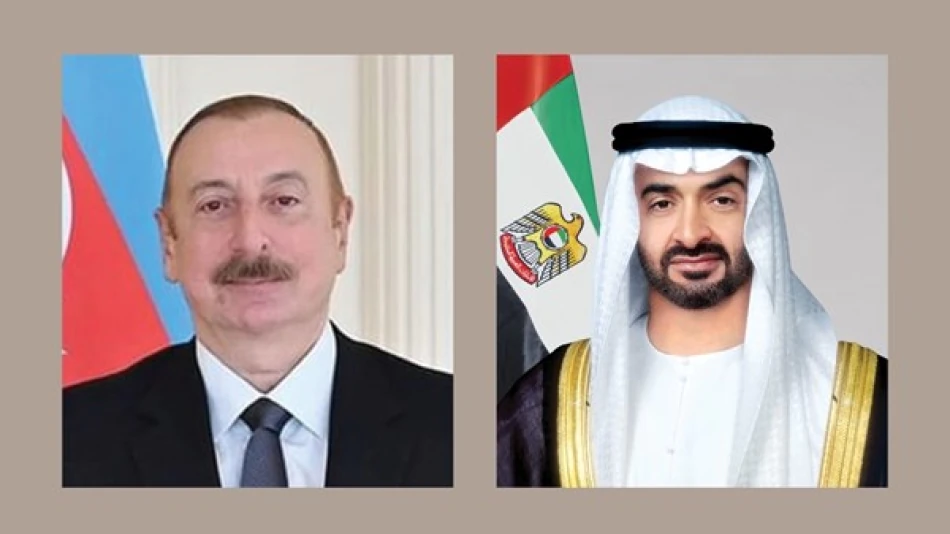
UAE President Congratulates Azerbaijani Leader on Historic Armenian-Azerbaijani Peace Accord
UAE President Congratulates Azerbaijan on Historic Peace Deal with Armenia
UAE President Sheikh Mohammed bin Zayed Al Nahyan has personally congratulated Azerbaijani President Ilham Aliyev on the recent historic peace agreement between Azerbaijan and Armenia, signaling the Gulf nation's continued diplomatic engagement in resolving regional conflicts through dialogue rather than force.
Diplomatic Outreach Reflects UAE's Regional Strategy
During a phone call, Sheikh Mohammed expressed hopes that the agreement would usher in a new era of cooperation between the two South Caucasus nations, benefiting their populations while strengthening peace and stability across the region. The UAE leader emphasized his country's consistent policy of supporting conflict resolution through diplomatic channels and dialogue.
President Aliyev responded by thanking the UAE for its sincere diplomatic efforts in promoting regional and global peace, security, and stability—a recognition that underscores the Emirates' growing influence as a mediator in international disputes.
Strategic Implications for Regional Stability
Caucasus Peace Dividend
The Armenia-Azerbaijan peace process represents a significant breakthrough in one of the world's longest-running territorial disputes. The conflict over Nagorno-Karabakh has plagued the region since the early 1990s, with the most recent flare-up in 2020 resulting in significant casualties and displacement.
For regional powers like the UAE, stability in the South Caucasus opens new corridors for trade and energy cooperation. Azerbaijan's position as a key energy supplier and Armenia's potential as a transit route to European markets make peace between the two nations economically valuable for Gulf investors.
UAE's Expanding Diplomatic Footprint
This congratulatory call reflects the UAE's broader strategy of positioning itself as a constructive diplomatic force beyond the Middle East. Similar to its mediation efforts in Yemen and its role in the Abraham Accords, the Emirates continues to leverage its economic strength and neutral positioning to build influence in conflict resolution.
The approach mirrors successful diplomatic models employed by countries like Norway and Switzerland, where smaller nations use their neutrality and economic resources to facilitate dialogue between larger powers.
Economic Opportunities on the Horizon
Both leaders also discussed expanding bilateral relations, particularly in economics and investment sectors that serve mutual interests and sustainable development goals. This economic dimension is crucial, as the UAE has increasingly used trade and investment partnerships to cement diplomatic relationships.
Azerbaijan's oil and gas resources, combined with its strategic location between Europe and Asia, make it an attractive partner for UAE sovereign wealth funds and state-owned enterprises looking to diversify their portfolios. Meanwhile, Armenia's growing tech sector and strategic location could benefit from Emirati investment and expertise.
The timing of this diplomatic engagement suggests the UAE sees the Caucasus peace process as both morally significant and economically opportune—a combination that has characterized many of the Emirates' most successful international partnerships in recent years.
Most Viewed News

 Layla Al Mansoori
Layla Al Mansoori






